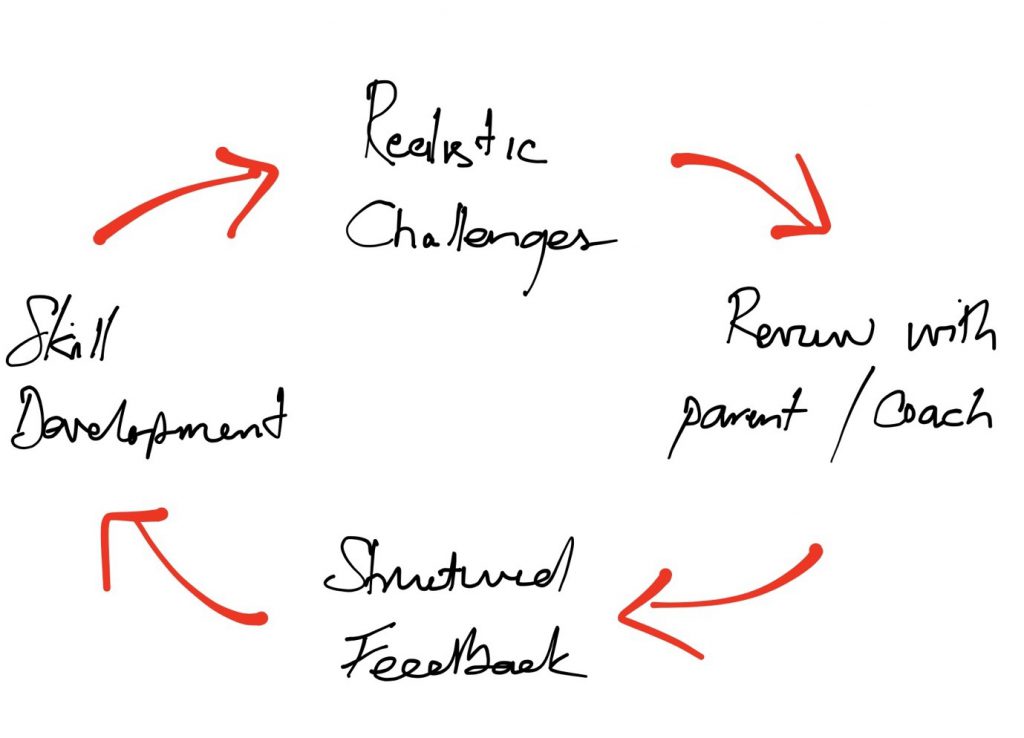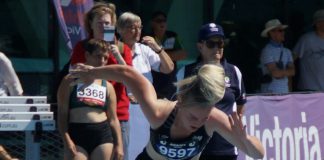On Friday night, after a presentation I gave in front of a room full of sporting parents, I was asked a question about optimising potential.
That question? “Should we be encouraging our 8-year-old to play up?”
It was a fantastic question, and not the first time I’ve been asked it. So, let’s explore the answer in this article.
But first, a little background about the athlete is question.
Sam is the third child in a very sporting family. He’s been kicking balls around the backyard for a long as he can remember and over the years has relished healthy competitive relationships with his siblings. Now, at the age of 8 and after 3 years of Rippa Rugby, Sam’s come to the end of his first year playing football. Sam is a good little athlete. He’s coordinated for his age, has natural speed, and not for the first time stood out from most of the other kids on the team.
The Challenge of Playing Up
Every parent wants the best for their children. When I spoke with Sam’s mum and dad they intuitively knew that life experiences that enable growth are important, and so believed that playing up would be a good thing for Sam’s development. But there was also trepidation. What if it didn’t work? What if the challenge of playing with older, bigger kids was too great for Sam and his skills and confidence went backwards?
Challenge is important for effective development. It provides an athlete with the opportunity to develop their mental and behavioural skills and attitudes, like commitment and self-evaluation, which are critical to optimising potential.
However, a challenge too far outside an athlete’s reach can be a burden. It can negatively affect their confidence and, ultimately, hold them back. Therefore, taking on a challenge in youth sport should be considered wisely by a young athlete, their parents, and coaches.
Overcoming Challenge Is a Skill
It’s easy to think that better performance is the result of a young athlete’s serendipitous encounters with challenge. That when we look back, we see that when the best athletes faced unplanned challenge at different points in their development journey, they naturally grew from the experience. Strength through adversity, right?
Or, that overcoming challenge is about having the right attitude – an attitude that the best athletes innately exemplify and everybody else does not.
But what’s clear is that while facing challenge is important, the specific skills to overcome them need to be taught, which when achieved, can help young athletes make the most of their sporting experiences.
Growing from Challenge: The Reflective Learning Cycle
Like all good experiential education, the skills and attributes to overcome and grow from challenge can be developed using a progressive, integrative and reflective learning cycle (figure 1).

Figure 1. The Reflective Learning Cycle of Challenge
The learning cycle begins with the development of the right skills for the stage of maturity and level of experience of the athlete. Then, the athlete tests their new-found skills in a dynamic environment encompassing realistic, as apposed to contrived, challenges. Next, supported by the coach, teacher or parent in a constructive review, the athlete receives structured feedback for use and refinement when tackling future challenges.
So, with this in mind, let’s examine Sam’s opportunity to play football at a level above his current age grade, as well as the important elements to include in an action plan to help him grow from the experience using the following 4 steps.
- Identify the potential challenges Sam will face playing up
- Bigger, stronger, faster players
- More skilful and tactically aware opponents (and teammates)
- Less time on the ball
- More pressure to play well
- More mistakes made
- New and different social environment
2. Identify the skills and attributes required by Sam to overcome the challenge of playing up, and assess his current level of ability for each of them
Commitment– what does commitment look like in the new environment and can Sam adhere to it?
Quality practice – does Sam have the skills and level of interest to practice more so that he can be competitive?
Goal setting and self-reinforcement – what should Sam focus on during his performance and how does he know he’s getting better?
Resilience – how well does Sam bound back after he makes a mistake?
Self-regulation – how does Sam react emotionally when things go wrong?
Creating and using support networks – how good is Sam at developing new relationships with adults and older children?
Once the key skills have been identified, and Sam’s ability has been assessed, an informed decision can be made on playing up. For example, despite being a big kid for age and how good Sam is technically, some work might need to be done to improve his resilience and self-regulation skills before going ahead with the move. On the other hand, you may choose to go for it if Sam’s skills stack up, after which the next stages of the cycle – review and refinement – can begin.
3. Review Sam’s performance of playing up
4. Provide feedback to Sam to help him improve
To Sum Up
Challenge in youth sport is essential. It’s what every young athlete grows and develops from. But overcoming challenge shouldn’t be left to chance. Instead, psychological skills and attitudes should be developed in a systematic and reflective way to prepare young athlete to take on progressively more difficult challenges, overcome them, and learn the most from their experiences.



































